
Ayahuasca’s Mediating Role in Mental Health
This study reexamines data from the Global Ayahuasca Survey, which included 10,836 participants who reported on their experiences with ayahuasca, a traditional Amazonian psychoactive brew.
For inquiries regarding the utilization of ethnobotanicals, or in case you are experiencing an adverse situation or difficulty integrating and experience, please read this page. For inquiries regarding legal support , please read this page.

All ICEERS’ studies are peer-reviewed, published in indexed and high-impact journals and follow the strictest methodological and ethical standards.

This study reexamines data from the Global Ayahuasca Survey, which included 10,836 participants who reported on their experiences with ayahuasca, a traditional Amazonian psychoactive brew.

This chapter adopts a transdisciplinary approach to explore the concept of psychedelic integration, considering its various contexts ranging from clinical trials to Neo-shamanic, traditional, and recreational settings.

The article examines the potential role of ayahuasca communities within the Compassionate Communities movement, which aims to support individuals and families during end-of-life care and bereavement.
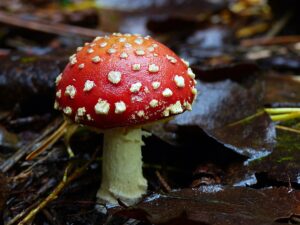
This chapter explores the growing global expansion of practices involving psychoactive plants, such as ayahuasca, iboga, and psilocybin mushrooms.

The study explores the associations between ayahuasca use in naturalistic settings and mental health and wellbeing, utilizing a dataset of 7,576 participants from over 50 countries.

The study provides a comprehensive review of over a decade of research conducted by ICEERS, focusing on how ayahuasca is embedded in traditional Amazonian medicine and its increasing global relevance.

The aim of this study was to validate the Spanish version of the Multifaceted Empathy Test (MET) and to evaluate the effects of cannabis use on social cognition.

This study aimed to evaluate the effects of a single dose of ayahuasca on college students with harmful alcohol use. The trial included 11 male college students, who were administered ayahuasca in a controlled environment with psychological support.
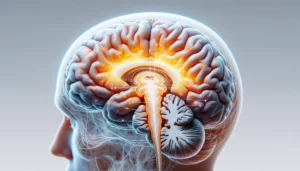
This study investigates the cognitive effects of long-term ayahuasca use among members of the Santo Daime church in Brazil, focusing on experienced users (over 20 years of use) and comparing them to beginner users (less than 3 years of use) and a control group of non-users.
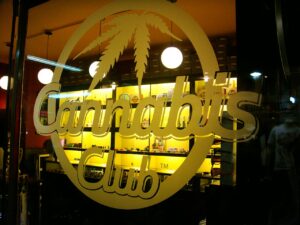
This study delves into the demographics, behaviors, and social dynamics of members of Cannabis Social Clubs (CSCs) in Barcelona from 2017 to 2020.

The authors emphasize the importance of developing and validating models and methods for psychedelic integration practices that help users of psychedelics to process and integrate their experiences into their daily lives.

This paper investigates Ayahuasca-induced Personal Death (APD) experiences during ayahuasca ceremonies, using two cross-sectional studies.

The research team designed guidelines for managing adverse scenarios in clinical trials involving ayahuasca and ibogaine. These include detailed protocols for participant screening and selection, medication management, and procedures during and after the experimental session.

This study offers an in-depth look at the globalization of ayahuasca, focusing on the case of a woman who migrated from the Amazon rainforest to Barcelona.

This study focuses on the psychometric evaluation of scales measuring the subjective effects of cannabis in Spanish-speaking populations.

This study aimed to analyze subjective reports of university students with harmful alcohol use participating in a single-blind study evaluating the effects of one ayahuasca dose (1 mL/kg).

The paper provides a detailed review of the pharmacological actions of ibogaine and its metabolite noribogaine, highlighting their potential in treating substance use disorders.

The authors propose community or peer-based structures as a viable means to control the supply of psilocybin-containing mushrooms and ensure a safe environment for non-medical use.
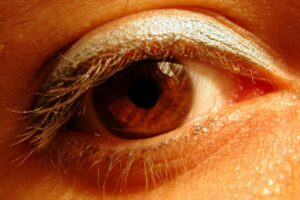
The study focuses on the recognition of emotions in facial expressions (REFE), a key aspect of social cognition, and its alteration in major depressive disorder.
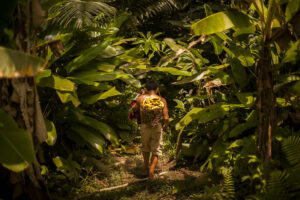
This study explores the articulations between the ritual use of ayahuasca by Indigenous and religious communities, the scientific interest in its therapeutic effects and the hegemonic psychotherapeutic models built around hallucinogens.

This study explores the effects of ayahuasca on the nature and frequency of insights, life and lifestyle changes reported by individuals after consumption.

This study explores several dimensions of the relationship between sensation seeking, impulsivity, and substance use, in addition to addressing the influence of executive functions on these behaviors.

The COVID-19 pandemic has had a devastating impact on the health and wellbeing of the global population. This paper presents the results of a longitudinal transcultural study that was begun at the peak of the pandemic (in April, 2020).

The book delves into the intersection of biopolitics and global drug policy. It uses the lens of continental social theory to critically examine the existing drug control regimes.

This study focuses on the comparison between PTSD (Post-Traumatic Stress Disorder) patients and control groups in relation to affective attention tasks.

Death is the tax we pay for living and grief is the tax we pay for loving. However, the mourning process is especially painful in Western society, which is imbued with a deep materialism and individualism.

This study explores the potential therapeutic effects of ayahuasca and cannabidiol (CBD) on social cognition and interactions.

This study examines the qualitative aspects of ayahuasca integration experiences based on survey responses from 1630 individuals worldwide.

This paper evaluates clinical studies of ibogaine with a focus on administration settings, with the goal to identify specific criteria that may promote safer contexts for ibogaine use.
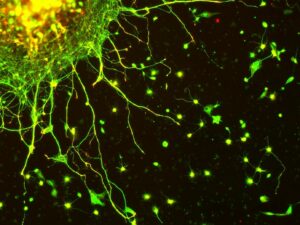
This study focuses on neural network modulation by ayahuasca exclusively. It is a systematic review aimed to assess changes in brain anatomy and neural networks activation with acute, subacute, or chronic use of ayahuasca through neuroimaging techniques.
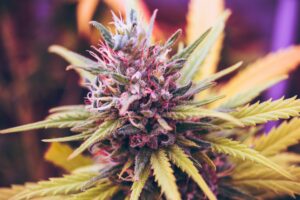
In this study, for the first time, regular cannabis consumers in Spain were assessed using health indicators, comparing these data with the general population.

This study proposes that, in light of historical, epidemiological, and scientific research, hallucinations can be better characterized as a common phenomenon associated sometimes with psychopathology but also with functional and even beneficial outcomes.

This study includes an exhaustive review of all the studies that have been published on the adverse effects of ayahuasca, with data taken from the Global Ayahuasca Survey..

This study sought to analyze the molecular targets of ayahuasca and its substances and relate their modulation to the possible therapeutic effects the brew seems to provide.
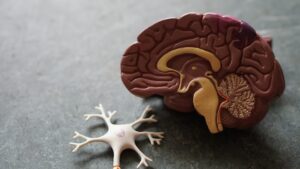
The purpose of this study was to investigate links between ayahuasca use and the thickness of corpus callosum in a normative sample.

The study was conducted during the global social confinement measures related to the COVID-19 pandemic to support the development of better strategies for stress management and the protection of mental health during future events.
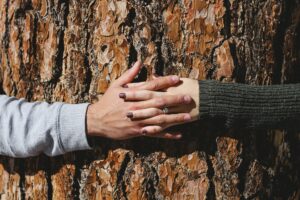
The aim of this study was to determine the effect of THC and CBD in social cognition abilities, checking how CBD can counteract the potential effects of THC on these abilities.

This study investigates associations between ayahuasca consumption in naturalistic settings and current alcohol and other drug use.
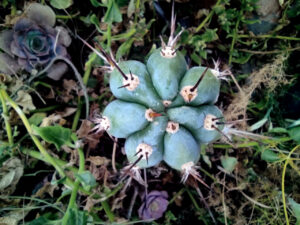
In this letter to the editor, the authors suggest that the well-established research with natural products can offer valuable insights for hallucinogen researchers, as they remain one of the main sources for the development of pharmaceuticals.

In this manuscript, we present the main methodological issues in psychedelic research, ranging from the most manageable (e.g., non-representative samples) to the most complex (e.g., limitations of the biomedical model).

This study explores historical and recent literature regarding endogenous DMT, with a special interest in the most controversial topics. It also delves into technical aspects that are not discussed in other reviews, in order to offer new insights.

This study gathered data regarding the occurrence of adverse events in all reported randomized, placebo-controlled trials with healthy and clinical populations involving ayahuasca administration (n = 108 ayahuasca administrations).

This study assessed endocannabinoid (anandamide, AEA; 2-arachidonoylglycerol, 2-AG) plasma levels in healthy volunteers and in volunteers with social anxiety disorder (SAD) after a single oral dose of ayahuasca or placebo.

We have analyzed all randomized, double-blind, and controlled trials that assessed the antidepressant effects of psilocybin and LSD in clinical populations to date.

This study evaluates the impact of regular ayahuasca ceremony participation on health by assessing the health status of 377 participants in ayahuasca ceremonies in the Netherlands using validated health indicators.

This article aims to outline the basis of an alternative proposal to the traditional approach to drug policy and drug dependence in Spain.

This study was carried out by means of a survey to assess quality of life, perceived social support, prison life and cannabis use in a sample of inmates in Spanish prisons.
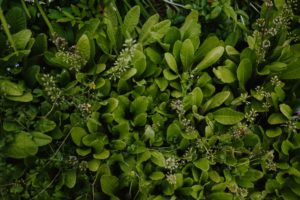
The polypharmacology paradigm, as it has been named, suggests that promiscuous drugs could be safer and more effective than highly selective ones. This is especially relevant with regards to complex diseases, like most mental health problems and neurodegenerative diseases, and for natural products, including psychoactive ethnobotanicals.

The aim of this article is to extend the point of view that takes into consideration cultural context to the traditional and communalistic use of psychoactive plants. Genuine medical systems have been developed, generally carried out in ritual or ceremonial settings, but these practices have often been vilified as a result of social stigma or drug policies.
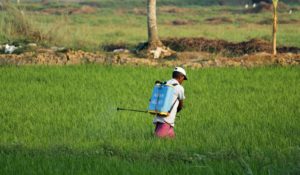
It is the first study in a new line of research focused on how psychoactive plants can have an impact on the damage caused by climate change. Cannabis, as an eco-friendly product, could replace the use of chemical pesticides for pest control.
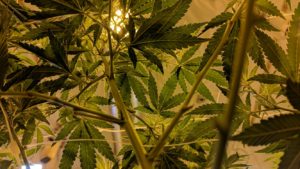
This study aimed to serve as a contribution to the existing literature about Cannabis Social Clubs (CSCs) and their potential as harm-reduction and risk-minimization agents for cannabis use.

This study investigates the effects of ayahuasca in volunteers with social anxiety disorder in a randomized, single-dose, double-blind, placebo-controlled, parallel-group clinical trial. Volunteers participated in an experimental session that included a simulated public-speaking test.

This study updated the previous systematic review evaluating quantitative preclinical and human studies assessing the efects of ayahuasca and its alkaloids on drug use and other psychological and cognitive measures related to substance use disorders.
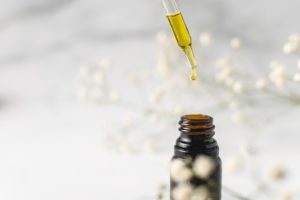
The aim of this study was to determine how CBD could counteract the subjective and psychotomimetic effects of THC in a contextual setting, expecting that participants under the effects of THC would show greater subjective and psychotomimetic effects when compared with CBD and placebo, and that THC-CBD coadministration would counteract subjective and psychotomimetic effects of THC.

The aim of this study was to perform an updated (2015-2020) systematic review of literature of the serious adverse events and fatalities associated with ibogaine administration. Special attention was given to those cases in which ibogaine was combined with other drugs, since previously concomitant use of other drugs was associated with serious adverse reactions and/or fatalities.

The aim of this study was to assess the risk profile of ayahuasca use in a religious context. After reviewing the literature to identify important concerns and common adverse effects, the authors developed an instrument that inquired about the frequency of the following effects: anxiety, diaphoresis, diarrhea, disorientation, distress, dizziness, drowsiness, dry mouth, headache, irritability, nausea, restlessness, shivers, tachycardia, tinnitus, tremor, and vomiting.

This article presents data from two randomized, double-blind, placebo-controlled clinical trials that evaluated the effects of ayahuasca on personality traits in healthy volunteers. Considering the evidence of associated changes in personality in other classic hallucinogens, and the antidepressive and anxiolytic effects of ayahuasca, the hypothesis was that ayahuasca would produce increases in Openness and Conscientiousness scores and decreases in Neuroticism scores.
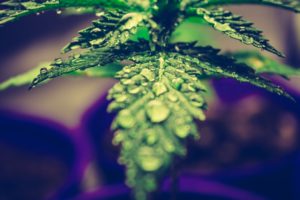
This paper, led by Maja Kohek, ICEERS’ associate researcher, about her field work on the ritual use of cannabis in a self-managed community, presents various examples of non-problematic drug use observed in a community in Catalonia, where a variety of psychoactive substances are used in ritual settings.

One of the main public health strategies adopted at the beginning of the COVID-19 pandemic consisted of implementing strict lockdowns to stop the transmission of the virus. Despite being an effective measure, the confinement and the associated social isolation create a stressful, potentially lengthy situations that has been proven to have several psychological consequences. Given the potential benefits that certain psychedelic drugs have shown for the treatment of psychological disorders, this study aimed to assess the impact of lifetime psychedelic drug use on mental health in relation to the first strict lockdown adopted by various countries (April-July 2020).

This cross-sectional study describes the social and health realities of a sample of Catalan therapeutic cannabis users with chronic illnesses, with the aim that professional pharmacists and other health professionals can learn in detail how this practice works.

The global mental health (GMH) movement aims to establish a world in which every human can access mental health services based on two fundamental principles: respect for human rights and evidence-based treatments. However, despite the vast anthropological literature supporting the importance of traditional health systems for the well-being of local communities, the recognition of traditional medicines and healers is highly marginalized within the GMH agenda.

The main objective of this pilot, proof-of-concept, randomized trial was to assess the effects of ayahuasca on the recognition of emotion in facial expressions (REFE), hypothesizing that ayahuasca would modify this parameter.

Over the course of one year, this prospective, observational non-controlled study, supported by ICEERS and the Beckley Foundation, examined the well-being and quality of life of 200 participants in a Shipibo healing program with ayahuasca, conducted by traditional healers. The results suggested that the Indigenous Shipibo healing work with ayahuasca has value to improve long-term well-being and quality of life for Westerners.

This study explores the extent to which one or other specific context, set, and setting may be more or less beneficial to the mental health and well-being of ayahuasca drinkers.

The volume of research on the therapeutic use of psychedelic drugs has been increasing during the last decades. Partly because of the need of innovative treatments in psychiatry, several studies have assessed the safety and efficacy of drugs like psilocybin or ayahuasca for a wide range of mental disorders, including major depression.

This article provides a case series of challenging psychological experiences found in a subsample of subjects from a previously published study in which the authors recruited ayahuasca-naive participants and followed them for 6 months after their first ayahuasca use.

This study discusses the challenges and opportunities for policy makers regarding the use of classic hallucinogens or psychedelics in a therapeutic context, as they have become promising substances to treat depression, anxiety, and substance-related disorders.

In the drug development, the formation of highly selective ligands has been unsuccessful in the treatment of central nervous system disorders. Multi-target ligands, from the polypharmacology paradigm, are being proposed as treatments for these complex disorders, since they offer enhanced efficacy and a strong safety profile.

In order to summarize the current evidence on microdosing and help future studies, this study presents a systematic review exploring issues like the safety of microdosing, main reported benefits, and what aspects of these benefits might be attributed to a placebo effect.

The aim of this systematic review was to evaluate how THC and CBD alter the recognition of emotions in facial expressions analyzing all randomized control trials done to date regarding the effect of these substances on this measure of social cognition.
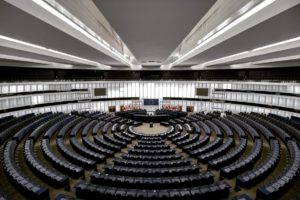
Drug policies in the European Union have not included positions on the regulation of cannabis, making it difficult for them to speak with one voice in this field. Member states implement divergent approaches to drug control, with a lack of consensus regarding drug policy reforms.

Research with natural products entails high complexity since natural molecules tend to display multitarget effects, or “pharmacological promiscuity.” Recent studies suggest that these effects could be a promising approach in the treatment of psychiatric disorders.
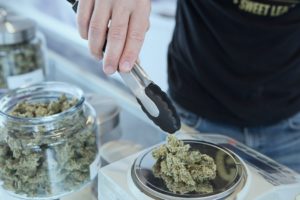
This article, published in the journal Methodological Innovations, reflects on the research experiences of the authors in studying Cannabis Social Clubs, providing insights for research in this area and within criminology and socio-legal studies more broadly.

On Sep 28, 2020, Maja Kohek and others published “Psychedelics in times of pandemic outbreaks,” a chapter of the book RESET: Reflexiones antropológicas ante la pandemia de COVID-19, where the authors propose considering the potential of psychedelics to help people deal with some of the challenges that we are facing in pandemic times.
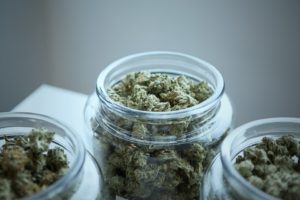
The CSC model remains prohibited across the EU. CSC activists have thus by and large shaped the way CSCs operate, often adapting to domestic law particularities or law enforcement activities. In this article, we present and discuss the range of CSC practices from 13 different European countries, and what these represent for the consideration of the CSC model in current policy debates.
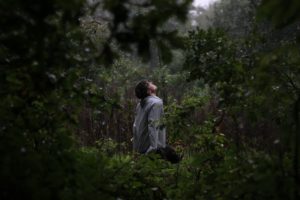
The need for innovative treatments in psychiatry could be responded to in part through the greater introduction of psychedelic psychotherapies, as they represent an integrative approach to mental health, involving the use of pharmacological tools that can be combined with enhanced psychotherapeutic interventions.

This study is aimed to gain more insight into the purity and content of iboga samples available on the market. Consequently, we can evaluate the claims made by the vendors about the characteristics of their products.

This study investigates the physical and psychological aspects of the experience with ibogaine, extracting categories that can be used to improve the assessment of the subjective effects of ibogaine and other psychedelics.

Since ayahuasca use is expanding worldwide, the aim of this study was to observe the effects of ayahuasca on psychological and mental health variables in naïve users in order to help medical practitioners to understand possible adverse effects and potential therapeutic uses.
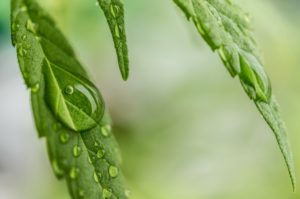
This study examined a sample of therapeutic members of Social Cannabis Clubs who used cannabis to treat a chronic disease, with a prospective assessment of quality of life, mental health and personality variables.

This study investigated the long-term effects of ayahuasca in participants who were grieving the death of a loved one, following a sample of subjects with a history of grief who willingly attended ayahuasca ceremonies at an ayahuasca center in Peru.
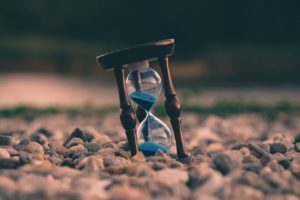
In this commentary, we expand the information available on the original article by briefly reviewing data from recent placebo-controlled, double-blind, cross-over clinical trials showing evidence that administration of single (or few) doses of LSD and psilocybin was associated with rapid and sustained reductions in depressive and anxiety symptoms in patients with end-stage cancer and other life-threatening diseases (e.g., Bechterew’s disease, Parkinson’s disease, Celiac disease).

This article reviews the previous preclinical, experimental and clinical studies available in the scientific literature in order to provide further translational evidence of the antidepressant effects of ayahuasca.

Assessing the health status of ayahuasca users has been challenging due to the limitations involved in randomized clinical trials and psychometric approaches. The main objective of this study is the implementation of an approach based on public health indicators.
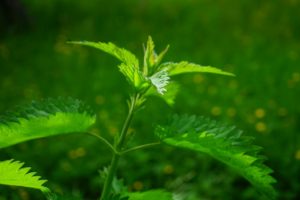
In Spain, cannabis users are turning to Cannabis Social Clubs (CSCs) as an alternative for obtaining supplies of the substance, free from the risks of the illegal market. The current study aims to establish the profile of a sample (N = 155) of Spanish CSC members and identify the impacts that these clubs have had on their consumption.

In order to study the patterns of use, the desired effects and the mental health status of individuals who make use of natural psychoactive drugs, ICEERS conducted detailed research through an online questionnaire that collected responses from 564 NPD users from 52 different countries.

Recent preclinical and clinical studies have demonstrated the potential of serotoninergic hallucinogens in the treatment of mood and anxiety disorders and drug dependence. Thus, the purpose of this study was to present a systematic review of the effects of these substances in the recognition of facial expressions, which is one of the main factors involved in social cognition.
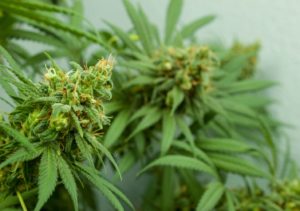
This article represents chapter 8 of the book Advances in Psychedelic Medicine: State-of-the-Art Therapeutic Applications, edited by M. Winkelman and B. Sessa, and published by ABC-CLIO as part of a project called Psychoactive Plants and Public Health.

A more integrative treatment is required that combines pharmacological tools with psychosocial interventions. Psychedelic-assisted psychotherapy could satisfy this need, offering pharmacological action along with enhanced psychotherapeutic interventions.
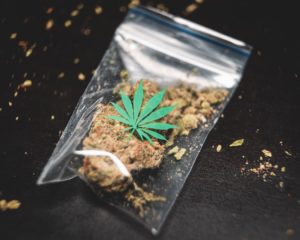
This exploratory study seeks to shed light onto how current Cannabis Social Clubs in Barcelona are operating and on whether and how their affiliation with a federation has shaped their practices. In particular, it aims to uncover the differences and similarities between federated and non-federated clubs and investigates whether federated ones adhere in practice to their respective codes of conduct.
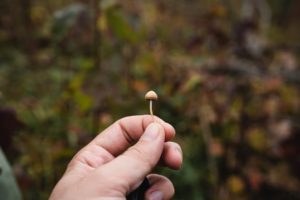
This study summarizes the most compelling evidence from clinical research with serotonergic psychedelics, performing a systematic review of systematic reviews where efficacy, tolerability, and safety have been assessed regarding the management of mood, anxiety, and substance-use disorders.

In October 2016, the authors were contacted by a 39-year-old man, Scotty Enyart, who claimed that ayahuasca improved his aphantasia. He was diagnosed with poor visual imagery in elementary, middle, and high schools.
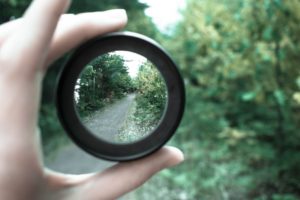
This report, written by Constanza Sánchez (ICEERS) and Michael Collins (Drug Policy Alliance) and published by the Global Drug Policy Observatory, offers international audiences valuable insights into recent developments in Spanish drug policy, with an emphasis on reforms at the regional level, tensions with the central government, and potential lessons applicable to other countries and contexts.

The underlying psychological processes related to the use of ayahuasca in a psychotherapeutic context are not yet well described in the scientific literature, but there is some evidence to suggest that psychological variables described in psychotherapies could be useful in explaining the therapeutic effects of the brew.

Psychedelics can have a positive impact on some dimensions of personality traits, opening a new field of therapeutic possibilities, where personality and associated brain modifications could be the basis of future therapeutic change.

This document was submitted as an official contribution to the work of the 40th Meeting of the Expert Committee on Drug Dependence (ECDD) of the World Health Organization (WHO). Since this meeting, the documentation has been available on an earlier basis according to established rules of proceedings.

Serotonergic psychedelics act as agonists at cortical 5-HT2A receptors, expressed in fronto-temporo-parieto-occipital areas. This study reviews all previous scientific literature regarding the effects of serotonergic psychedelics in modulating users’ personality.

In the present article, we review basic and clinical evidence supporting the possible beneficial effects of ayahuasca (and other serotonergic or classical hallucinogens) in the treatment of mood and anxiety disorders in general, with a focus on social anxiety.

In this article, we trace the operations of power, i.e., how different forms of power combine, compete and resist each other in the emergence, later evolution and the present dynamic of the international drug control regime (IDCR). We confirm the assumption that the prohibition in the IDCR, as well as other features of the system, has been the result of a series of political decisions taken by a specific group of powerful states at the center of global capitalist economy, and the USA as the system hegemon above all.
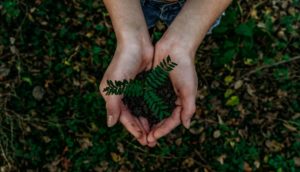
This article, intended for mental health professionals, reviews the most recent human studies about the effects of ayahuasca, a natural psychoactive concoction used for centuries by indigenous groups from Northwestern Amazonian countries.
Download the full
Ayahuasca Technical Report
26 pages with all the latest research-based facts about ayahuasca, its uses, pharmacology, legal status and therapeutic effects, signed by 11 world-class experts and researchers.
| Cookie | Duration | Description |
|---|---|---|
| cookielawinfo-checkbox-analytics | 11 months | This cookie is set by GDPR Cookie Consent plugin. The cookie is used to store the user consent for the cookies in the category "Analytics". |
| cookielawinfo-checkbox-functional | 11 months | The cookie is set by GDPR cookie consent to record the user consent for the cookies in the category "Functional". |
| cookielawinfo-checkbox-necessary | 11 months | This cookie is set by GDPR Cookie Consent plugin. The cookies is used to store the user consent for the cookies in the category "Necessary". |
| cookielawinfo-checkbox-others | 11 months | This cookie is set by GDPR Cookie Consent plugin. The cookie is used to store the user consent for the cookies in the category "Other. |
| cookielawinfo-checkbox-performance | 11 months | This cookie is set by GDPR Cookie Consent plugin. The cookie is used to store the user consent for the cookies in the category "Performance". |
| viewed_cookie_policy | 11 months | The cookie is set by the GDPR Cookie Consent plugin and is used to store whether or not user has consented to the use of cookies. It does not store any personal data. |
